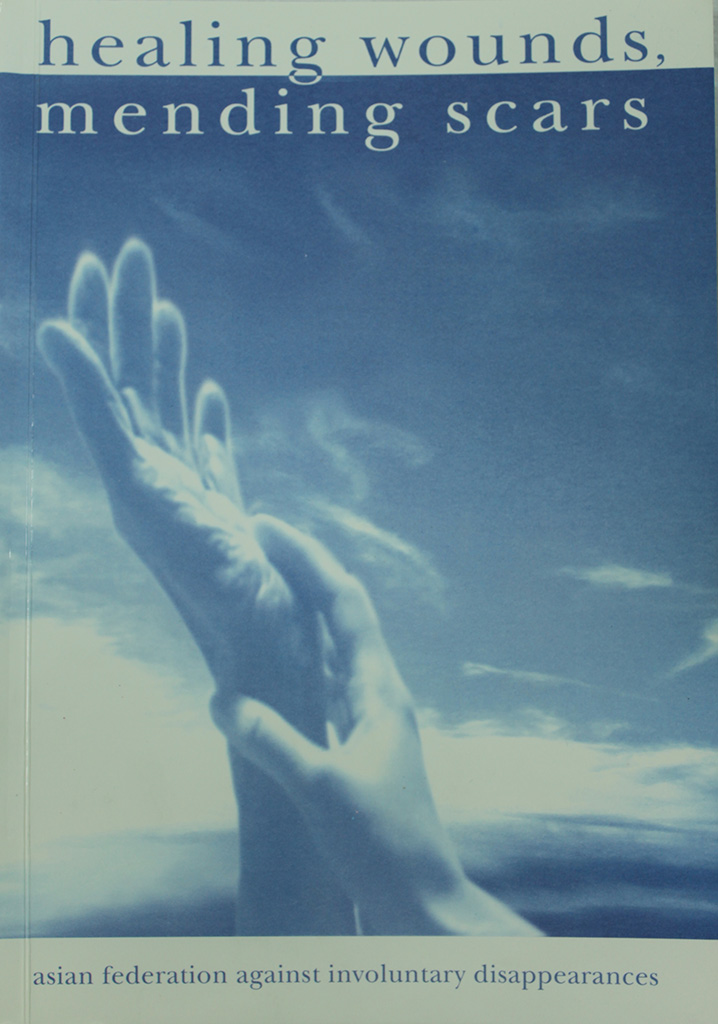Tikiri, a funny yet equally serious fellow, is probably the most well-known and beloved delegate during the First Sharing of Experiences of Asian Families of the Disappeared held in Jakarta, Indonesia in December 2004. A smooth singer and a certified crooner, he is capable of captivating anyone with his voice, charm and wit. A man with a powerful presence, Tikiri embodies the adage “small but terrible.”
From 1988 to 1989, the President of Sri Lanka was R. Premadasa who headed the United National Party (UNP). There were many problems during this period especially unemployment.
To address this quandary, many educated youths formed numerous associations which forwarded their demands to the government. A number of them also joined the radical Janatha Vimukthi Peramuna (JVP / People’s Liberation Front).
Their demands, however, were ignored by the authorities, forcing them to struggle against the status quo. The government, for its part, banned the JVP and arrested many of its members, swelling the number of youth detainees in the police stations and army camps. Thus, a civil war ensued, with the government taking no action to control the violations of human rights.
At that time, I was the General-Secretary of the Central Organization Rambukkama of the Sri Lanka Freedom Party headed by the current president, Chandrika Bandaranayke Kumaratunga. Because of my political affiliation, government loyalists and UNP supporters reported that I was allegedly involved in anti-government activities.
It was also during this period when a large number of youths, especially students of higher classes, were taken into custody and killed. An equally staggering number of young people also disappeared, presumably abducted by the security forces. My third son Saman Sri Wijayasundara was one of them.
He was 21 years old at the time of his disappearance and a student at the advanced level in Pinnawala Central College. On 11 June 1989, my son went out of the house to go to his friend’s house to discuss their school requirements. He did not return.
So I began my frantic search for my missing son, going to the detention camp in Deraniyagala where I met one of my son’s friends who told me that Saman was taken into custody by unidentified armed personnel. I also went to all the police stations and detention camps along with my close relations for about six months. We could not even find a fleeting trace of him.
His loss is so immense that words fail to describe how I feel, even to this day. The pain was just too much for my anguished mind. The moment we heard of his disappearance, we asked all our friends and relatives to help us look for him. We also sent word to the different security forces and members of parliament, asking for their assistance and went to the different detention camps to search for him. Still, we came out empty-handed.
Despite the frustrations and obstacles that we had faced, these had only furthered my resolve to bring these perpetrators to a court of law. What they did was inhumane, plucking him out from the warm security of his family.
I simply console myself by clinging to my Buddhist faith — that maybe his disappearance is part of his Karma. This, however, did not prevent me from experiencing great mental pain for five years.
Because of his lingering absence, we feel that we have lost a person who could look after us in old age. Although we have received a meager Rs. 25,000.00 ($240) as compensation from the government, I still have resolved to refrain from ever voting again.
The only form of redress that is available to me is the warmth and camaraderie given to me by my organization — OPFMD. As I mingle with survivors and fellow families of the disappeared, I become even more convinced that all these victims did not commit any illegal act. It has also led to the path of eventual re-empowerment. Now, I am certain that I can do something to address this scourge.
But my son was not the only victim. In fact, due to the sheer number of disappearances, the present government formed three (3) Presidential Commissions of Inquiry for disappeared persons. Though certain recommendations were introduced, much more still needs to be done.
The sharing of experiences of Asian Families of the Disappeared in Jakarta, Indonesia held on 6-10 December 2004 also assisted in my recovery. Because of my interaction with other families, survivors and advocates, I learned to smile more often. It also furthered my resolve to take action and share whatever knowledge I have to prevent the scourge of enforced disappearance from recurring.
During the last day of the Conference, we were grouped into four (4) wherein each group was asked to make a kite and a lantern. Apparently, the activity was meant as part of the gathering’s rehabilitation aspect. I remember it vividly because I was able to connect the kite and lantern that we made with my own life and my own personal struggle. Because of the kite’s simplicity, I came to believe that life is also simple. One will be able to control the kite’s glide through the air because of the thread, but it will soon fall to the ground once the thread is broken. In much the same way, we must learn to control our mind for us to be able to direct our lives and move on in spite of the tragedies that we once faced.
The lantern also gave me the insight that no lantern can light itself and it can never glow without oil. I concluded that life is like a lantern, for we all need someone to help us heal our wounds, whether they are physical or emotional.

